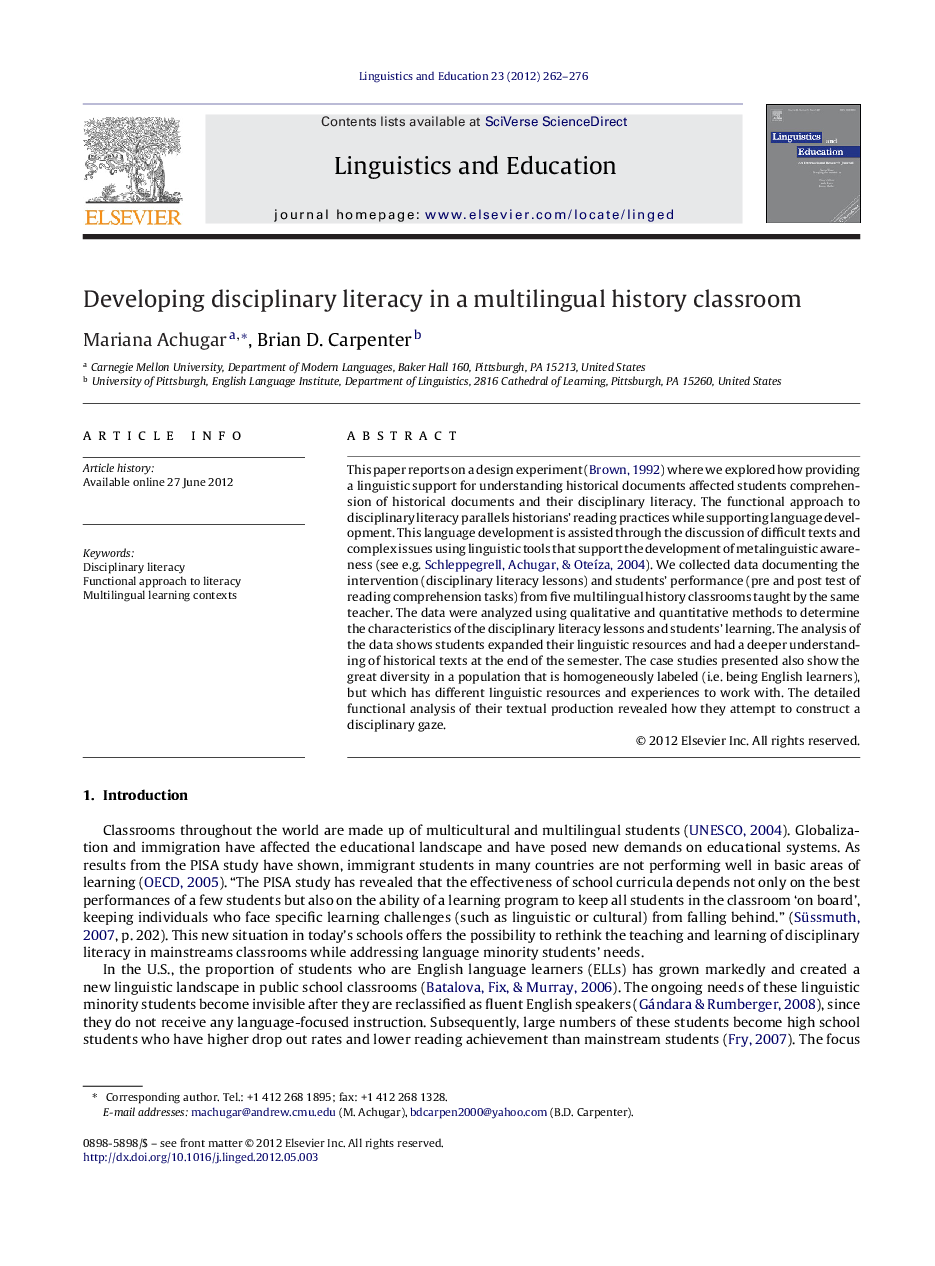| Article ID | Journal | Published Year | Pages | File Type |
|---|---|---|---|---|
| 366288 | Linguistics and Education | 2012 | 15 Pages |
This paper reports on a design experiment (Brown, 1992) where we explored how providing a linguistic support for understanding historical documents affected students comprehension of historical documents and their disciplinary literacy. The functional approach to disciplinary literacy parallels historians’ reading practices while supporting language development. This language development is assisted through the discussion of difficult texts and complex issues using linguistic tools that support the development of metalinguistic awareness (see e.g. Schleppegrell, Achugar, & Oteíza, 2004). We collected data documenting the intervention (disciplinary literacy lessons) and students’ performance (pre and post test of reading comprehension tasks) from five multilingual history classrooms taught by the same teacher. The data were analyzed using qualitative and quantitative methods to determine the characteristics of the disciplinary literacy lessons and students’ learning. The analysis of the data shows students expanded their linguistic resources and had a deeper understanding of historical texts at the end of the semester. The case studies presented also show the great diversity in a population that is homogeneously labeled (i.e. being English learners), but which has different linguistic resources and experiences to work with. The detailed functional analysis of their textual production revealed how they attempt to construct a disciplinary gaze.
► Understanding disciplinary literacy as certain content specific genre, and as a position to look and speak from. ► Detailed description of focal lessons of intervention detailing metalinguistic work and showing historical documents worked on. ► All students were able to expand their linguistic resources and have deeper historical understanding of texts. ► All produced more language, more technical vocabulary and a wider range of clause types. ► ELLs’ texts show some incipient understanding of the importance of sourcing texts in history and how all history is authored, not a neutral account of events. ► Immigrants and language minority students’ bilingual reservoir and multicultural experiences become assets and not problems in the classroom.
